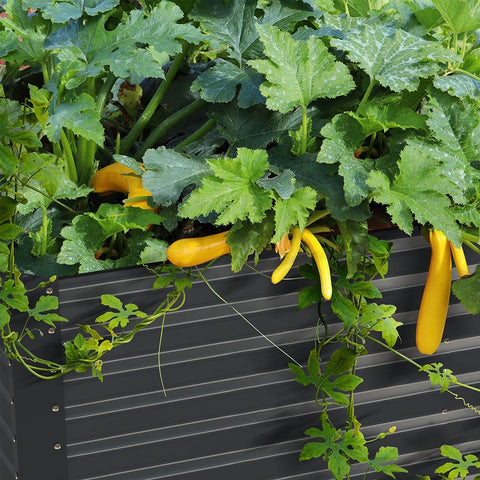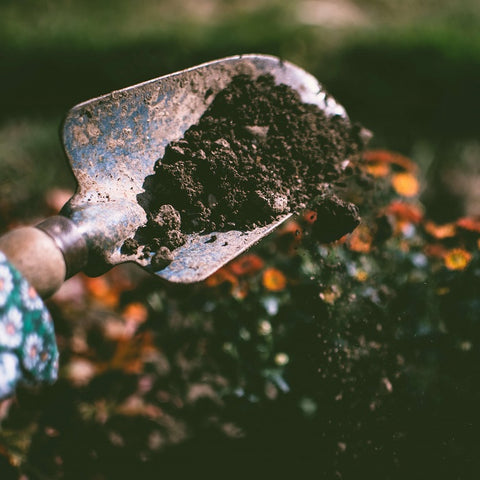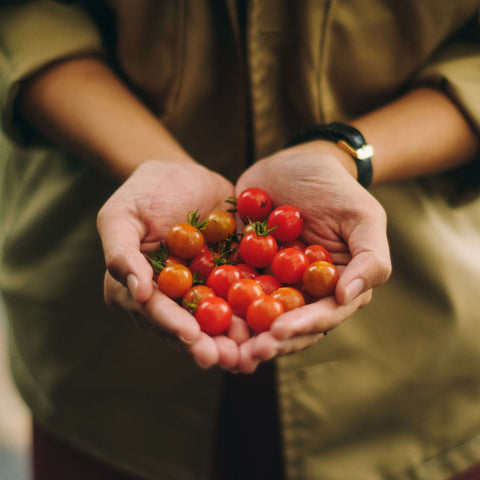Organic gardening is not just about growing food without synthetic fertilizers and pesticides. It's a holistic, holistic approach to gardening in a way that maintains and supports healthy, balanced ecosystems and biodiversity - in and outside your own yard. The following content also has some reference value for raised garden beds.
Whether you're a first time gardener with the intention of growing everything organically from the start, or you're transitioning from traditional gardening using pesticides and fertilizers to organic methods of growing, here are some steps you can take.

Why start organic farming?
There are many compelling reasons for organic gardening. When you eat organic fruits and vegetables that you grow yourself, you avoid ingesting the pesticides that were used to grow those foods. Broad-spectrum synthetic pesticides also indiscriminately eliminate all insects (pests and beneficial bugs) in gardens, which can wreak havoc on biodiversity and local food webs.
Synthetic fertilizers have much higher concentrations than organic fertilizers, often resulting in nitrogen and phosphorus loss, pollution of natural water sources, and excessive algae growth in water bodies.
Organic gardening allows crops to grow as close together as they want. There are many alternative methods of pest control and fertilization you can use in your garden without the same risks as non-organic methods.
Start your organic garden
Ameliorate soil
It all starts with the soil. In order to prepare the crop for planting, it needs to be modified with organic matter. When a farm wants to get "USDA Organic" certification, it is only allowed to add approved plant and animal material to the soil, including raw animal manure, composted plant and animal material, and uncomposted plant material, for a period of three years
As a home gardener, you are certainly not bound by this large window of time, and the amount of time you should wait also depends on what was previously in that place. If it's a lawn or farmland where a lot of synthetic chemicals are often used, you'll have to wait longer than if you had to clear a previously unspoiled piece of land to grow vegetables.
Choose simple crops
When choosing crops for your first organic growing season, it's important to start simple. Don't plant any finicky crops, as they are very sensitive to pests, such as broccoli and eggplant. Once you have some experience with pests that appear in your garden, you can plant these plants whenever you want.

Gather your supplies
Research and line up suitable organic fertilizers and any other recommended products you may need to protect your plants, such as row mulch and organic pesticides.
Follow the Golden Rules of gardening
Just as in traditional gardening, it is vital to follow the rules of crop rotation to prevent pests and diseases. And, while it's not based on hard facts, it's helpful to know how plants interact with each other, so familiarize yourself with companion planting.
Attract pollinators
Make sure to plant pollinator flowers in time so they bloom at the same time as plants that need pollination, such as zucchini, to attract bees and bumblebees.
Take good care of your garden
Keep your plants healthy by leaving enough space between them to maintain good air circulation (to prevent the spread of fungal diseases), and weeding, watering, and fertilizing regularly.
Traditional and organic seeds
Organic seeds tend to be more expensive than conventional seeds, but seed companies often sell both. There are two benefits to using organic seeds: First, organic seeds are grown in accordance with stricter regulations on the use of agricultural chemicals, so by purchasing organic seeds, you are indirectly contributing to the protection of natural habitats, waterways, and local ecosystems. In addition, organic seeds performed best in organic gardens in terms of yield and disease resistance.

Organic fertilization method
There are many organic fertilizers on the market, from fish emulsions to blood meal. What kind of commercial fertilizer you use, when you use it, how much you use it, and how often you use it depends on the crops you grow. The Organic Materials Review Institute (OMRI) is an international non-profit organization that publishes a list of organic products every year. You can select a product from the list or check if the product has an "OMRI List" label on the bottle or bag.
Organic pest control program
In organic gardening, the same two rules apply to conventional gardening: the use of pesticides, organic or conventional, should always be a last resort. Second, don't use a product unless you know what you're up against. Indiscriminate use of pesticides does more harm than good.
Neem oil and diatomaceous earth, although organic products, are quite powerful and should be used with the same caution as other pesticides. Often beneficial insects such as leafcutter bees cause minor damage to plants purely for aesthetic reasons and do not require any treatment at all.
Once you've identified a pest problem, there are many different organic pest control options. Just like fertilizers, choose products according to their OMRI list.
Organic compost options
Composting is an important part of organic gardening. Two things to keep in mind, though. Mature compost is an excellent way to add organic matter to the soil, but because of its unpredictable nutrient profile, it should not be relied on alone for fertilization. For successful organic gardening, you still need a stable N-P-K ratio of organic fertilizer and other micronutrients that your plants may be deficient in.
Consider what you add to the compost bin. You don't have to fill it with just organic vegetable waste, as any chemicals used in conventionally grown produce break down during the composting process. However, be aware that there are four persistent herbicides that remain in the compost.
Warning:To avoid contaminating your compost, don't use any traditional broadleaf herbicides on your lawn and elsewhere, and don't compost grass clippings if you must. Also avoid using compost from composting equipment, as it may be contaminated.
Don't limit organic gardening to food
An organic garden is a great start, but sustainable gardening and concern for the environment shouldn't stop there. If you have a completely organic vegetable garden next to a lawn that uses herbicides to control weeds, it's not natural.
Reconsider the size of your lawn and perhaps replant native grass. Add more native plants to your landscape that are not only better adapted to the local climate, but are also essential for insect survival. Setting up a pollinator garden and growing milkweed for monarch butterflies is just one of many things you can do to support biodiversity, a healthy local ecosystem, and your vegetable garden at the same time.








